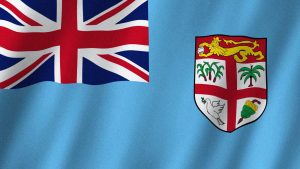Fiji’s first Foreign Policy White Paper has been celebrated as a milestone for the country’s international relations.
“The White Paper states Fiji’s identity and values. It states where we stand on issues,” its chief proponent, Prime Minister Sitiveni Rabuka, told Parliament on October 1.
Acknowledging that the paper may not be popular to some, he reaffirmed to Parliament, “The government stands for what is right for Fiji, not necessarily what is popular.”
Rabuka credited the “wise counsel” of a reference group, led by the Permanent Secretary of Foreign Affairs, whose contributions were woven together by the paper’s principal drafter, Peter Varghese, the former head of Australia’s Department of Foreign Affairs and Trade.
Signaling Fiji’s positioning alongside traditional partner Australia, the paper prioritizes strengthening social cohesion, a term introduced into Australian politics by Gough Whitlam in 1972, and the recent focus of growing urgency and debate. The term has also become a buzzword for Rabuka’s coalition government, integrating with national truth and reconciliation efforts, and the launch of a United Nations Social Cohesion Program, aimed at “fostering peace, trust and accountability” in Fiji and the region.
The resonance with Australian foreign policy language is hard to miss. The White Paper claims to “eschew coercion of one country over another,” echoing Australian Foreign Minister Penny Wong’s reference to China’s actions in the South China Sea in remarks to the Maritime Cooperation Forum, and Russia’s invasion of Ukraine in Australia’s National Statement to the 79th Session of the U.N. General Assembly.
Fiji added its own verse to the song sheet by presenting the “Ocean of Peace” concept, heralded by Rabuka as “the single most significant contribution that Fiji has made to peace and security in our neighborhood and the broader Indo-Pacific region.” The paper outlines the Ocean of Peace as “both an aspiration and a pathway to a regional arrangement shaped by the states in the Pacific Islands Forum, while also being acknowledged by other powers in the broader Indo-Pacific region.” Fiji committed to promoting its ten guiding principles alongside the Pacific Islands Forum and the Melanesian Spearhead Group (MSG).
Rabuka’s foreword emphasized that the White Paper “makes clear that in all we do in foreign policy we will put the Pacific family first.” This commitment is clarified by the observation that Australia is the second most mentioned country in the document after Fiji, followed by New Zealand. Tuvalu is the only other Pacific nation specifically referenced, mentioned twice in relation to climate change discussions with Fiji. Australia appears 38 times.
Practically speaking, it can be argued that Fiji has deeper ties with Tuvalu, grounded in freedom of movement, cooperation, and shared history, than with Australia. The prominence of Australia and New Zealand in Fiji’s “family first” approach suggests that some family members are more central than others.
In contrast to the heavy mentions of Australia, there is no mention of self-determination in the Pacific, contradicting the White Paper’s prioritization of sovereignty in one of the world’s most colonized regions. A country whose sovereignty does warrant a mention is Israel, where Fiji commits to a new embassy to enhance “amicable relations” and bilateral cooperation on peace, security, and agriculture.
The paper frames Fiji’s own journey to self-determination as moving “beyond our colonial past to a modern partnership” with the United Kingdom. It prioritizes expanding opportunities for Fijians in the British Armed Forces and advancing military training, touted as pillars of socioeconomic progress and people-to-people ties. Despite its narrative of progress, the partnership seems rooted in militarism, equating development with Fijians serving in their former colonizer’s military. Celebrating Fiji’s departure from its “colonial past,” the paper overlooks Pacific “family” members seeking regional solidarity in their self-determination trajectories.
The paper’s closing argument that “a durable foreign policy ultimately rests on the support and understanding of the people of Fiji” rings hollow without public consultation or at the very least engagement with civil society. Similar cracks are evident in Fiji’s “family first” foundation, reflected in the prime minister’s dampening comments during the Pacific Islands Forum Troika mission to New Caledonia. Rabuka called for “reasonable” demands from the Kanaky movement following the May uprising that resulted in the deaths of 13 people at the hands of French colonial forces and loyalist militia, yet offered no equivalent advice to France.
Fijian academics and former diplomats point out how Fiji’s support for Israel at the International Court of Justice departed from previous positions, ignoring preceding endorsements of international instruments and conventions, and diminishing the neutrality that upheld Fiji’s peacekeeping legacy in the Middle East. The country’s most recent move, being the sole U.N. member to vote against the Implementation of the Declaration on the Granting of Independence to Colonial Countries and Peoples, represents another nail in the coffin.
The past two years of the Rabuka-led coalition government have seen a perilous undermining of Fiji’s global standing. Despite efforts to project stability, Rabuka’s leadership tends to revert to a style that he himself has called unilateral and that others describe as erratic.
A split in the prime minister’s People’s Alliance Party has provoked a public loyalty test over the past month. The pledges of fealty to Rabuka, binding the coalition’s political future to his, diminish hopes for a smooth succession in a political landscape where decorous debate is increasingly rare.
After publicly siding with Donald Trump, whose former staffers have warned meets the definition of a fascist, and doubling down on support for Israel after the ICJ declared it to be breaking international law, Rabuka remains convinced that his government knows what is “right for Fiji.” In its self-declared Ocean of Peace, Fiji seems positioned as an enforcer of stifling stability, promoting peacemaking that aligns with the powerful while urging the less powerful to swallow their dissent.

































